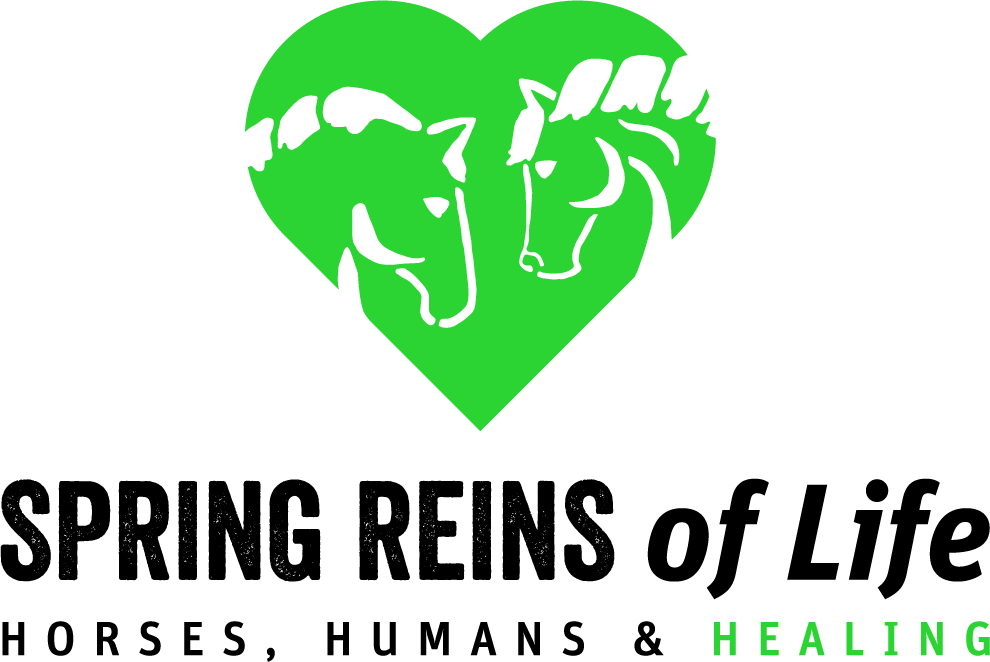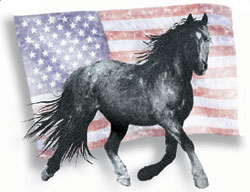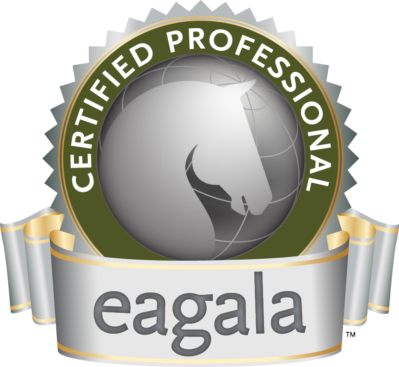“The battle for freedom was won on the back of a horse” ~ Anonymous
Coming HOME ©
Equine Assisted Services for Military Families
(Military Veterans and/or Family Members)
War Deployment Changes the Military Family Unit in Many Ways –
The Horses Offer a Safe Way to Reconnect and
Find Your Place Again…
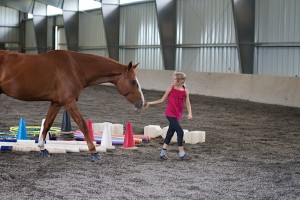
Photo Courtesy of Robert Stern, NY
Coming HOME is a specifically designed workshop program for members of the armed forces (active duty, reservists, and veterans) and their families. Military families face challenges that civilian families don’t. In the case of OIF and OEF families, there are even higher stressors than that of previous wars. Sometimes, the happiness of coming home is replaced by strain as conflict arises as the family attempts to re-integrate.
Since late 2001, the USA has deployed approximately 2 million service members with many seeing multiple and extended tours placing a higher than normal stress on military families. A long term deployment out of state or oversees is difficult for servicemen and women and their families. The stress of absence is exacerbated by the difficulty often faced when one comes home to children who are older and different than pre-deployment, new patterns and habits that were developed within the family over time, and the problem solving attached to “picking up where you left off.” Add in potential combat stress and uncertainty related to future deployments or securing employment in a challenged economy…to say it is not easy when our military comes home is probably an understatement.
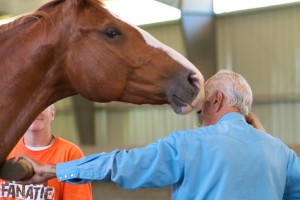
Photo Courtesy of Robert Stern, NY
Traditional family counseling is not a viable option for many. There is often resistance to attending therapy, and/or traditional therapy is not something with which some people feel comfortable. But addressing some of the issues which might serve to debilitate the family unit is very important; ignoring them will only make it worse.
A family might experience some of the following during post-deployment(s):
- Youth functioning and well-being – The children may experience increased anxiety, emotional or behavior difficulties, problems in school, and aggressive or risk taking behaviors. Studies are showing that teens have hardships at school and with peers whereas younger children are expressing more anxiety symptoms.
- Marital communication – A marriage often experiences deployment related challenges such as changing parenting and head of household roles, relationship barriers, communication breakdowns, tension over financial issues, or trauma and its effects on intimacy. Studies are showing that extended deployments are creating psychological, emotional and relational challenges for service members and their spouses.
- Family as a unit – The most vulnerable are the children left at home, young children may not fully comprehend why a parent must leave while adolescents must cope with parental deployment during a critical and rapid stage of social development. Spouses take on very different roles during deployment to keep things running, and then have to reintegrate their partner who may not be the same person returning home.
- PTSD or other Combat Stressors on the Family –The ill effects of PTSD will often cause irritability, drinking, fighting, detachment, domestic violence, and decision fatigue. It is easy to see how that can damage family relationships.
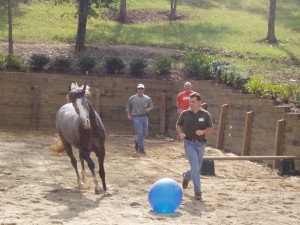
Photo Courtesy of Life-Nav
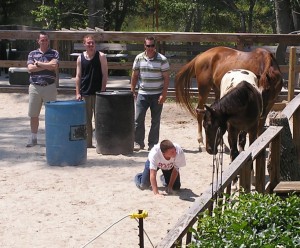
Photo Courtesy of Life-Nav
We can help.
Spring Reins of Life is an organization which provides therapeutic animal assisted intervention, utilizing horses to work as guides and partners in identifying potential problems and helping develop resolutions. We provide family and group programs where the client(s) are teamed with an equine specialist, a licensed mental health professional and of course, our horses that are specifically selected for their ability and sensitivity to respond well with people. We operate as an EAGALA Model program which is solution focused, and based upon self discovery from the feedback, reactions and responses delivered by the horses. Participants learn about themselves and their family members by engaging in activities with the horses, and then by discussing metaphors, feelings, behaviors and patterns within their own context.
Horses respond to subtleties in our body language, and it is this focus on the non-verbals that can be very helpful. A person may “say” they feel a certain way, yet their body language reveals emotions of an entirely different scope. Horses sense this and demonstrate an ability to mirror and reflect a client’s emotional state. Persons participating in our program while working with our horses and our team often learn more about themselves, allowing them to experience “break-throughs”. These break-throughs allow one to identify underlying emotional issues, or to see an individual or family issue with more clarity while out of the home environment.
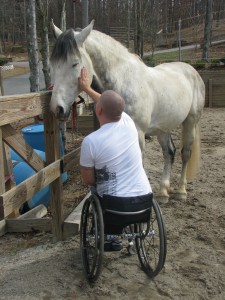
Photo Courtesy of Life-Nav
Coming HOME offers sessions to military couples, families and groups. We provide carefully considered activities with our horses that are explorative and supportive in nature to aid service members and their families with difficult transitions typically associated with military life. Ground based exercises with the horses are designed to mimic real life issues. This allows the warriors, their family members and the facilitators to “see” where the challenges are and find solutions that work. This process quickly creates situations that will highlight unhealthy patterns and personal strengths or weaknesses. At the same time, pathways for new and more solid ways to relate and communicate can be re-enacted. A facilitated process, such as this, can serve as an intervention for relationship distress and impairment.
Benefits of this intervention include:
Finding resilience – activities with the horses help to re-create communication gaps, stressors, and relationship problems. Warriors and their families learn to adapt, improvise, and overcome perceived stressors and find their own creative and workable ways to meet the needs of each family member.
Adaptability – warriors and their families are asked to respond to the unpredictability and inability to “control” the horses and therefore discover alternative ways to communicate and allow relationships to become redefined and work better.
Solution-focused – couples and families have the opportunity to find their own solutions to their problems by interacting with the horses in proposed exercises and with the active hands-0n experience; they learn to rely on themselves and their team members in different more effective ways.
Action, not talk – principles of healthy transitions are practically applied and practiced. In many cases so much more information is both discovered and applied in real time that by actually doing it – there isn’t the need to hash it out with words, the solutions that are best for your particular family become really clear and easy to find.

Photo Courtesy of Tamara Gooch Photography
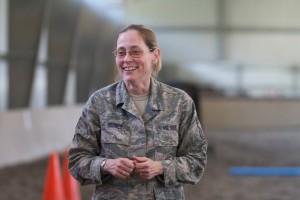
Photo Courtesy of Robert Stern, NY
Coming HOME military programs at Spring Reins of Life are designed with the group atmosphere in mind; however we do offer private sessions for individual couples or families. Also we offer both group and private sessions for Military veterans and active duty personnel via Operation Horse (O.H.). If this is of interest, or you feel you may need some extra “help”, please inquire with us for more information. All services within SROL are funded and free of charge to military service members and their families. We also offer services on children’s bereavement for those who have lost a parent due to the war, see Children’s Bereavement Programs within this site or contact us for more information.
Knowing when to reach for help, recognizing signs of trouble, and enhanced self-awareness are also areas covered in this exploratory, support-based workshop program.
